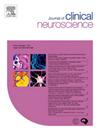他汀类药物对老年脑卒中患者生活质量和功能的影响:系统回顾和荟萃分析。
IF 1.9
4区 医学
Q3 CLINICAL NEUROLOGY
引用次数: 0
摘要
背景:关于他汀类药物对老年缺血性卒中或短暂性缺血性发作患者的有效性和安全性的证据有限,特别是在体弱个体中。研究经常排除体弱患者,限制了对整个老年人群的最佳治疗方法的见解。本综述旨在评估他汀类药物二级预防对缺血性卒中或短暂性缺血性发作后老年患者生活质量和功能的影响,因为这些结果与该患者群体的治疗目标一致。方法:检索截至2023年6月6日的4个主要数据库,进行系统综述和meta分析。如果研究涉及他汀类药物,评估生活质量或功能,关注老年患者,并解决缺血性卒中或短暂性缺血性发作,则纳入研究。结果:我们纳入了6项随机对照试验和16项队列研究,共计66.273例患者。平均或中位年龄为65至79岁。没有提供年龄范围,也没有报告虚弱状况。一项试验检查了他汀类药物对生活质量的影响,结果好坏参半。关于他汀类药物对功能的影响,两项试验报告了积极的影响,两项没有发现影响,两项结果好坏参半。队列研究的荟萃分析显示他汀类药物与功能之间存在正相关(效应值:0.43,CI 0.28-0.58)。方法学质量较差,主要是由于混淆、参与者选择和将患者分配到干预组。结论:他汀类药物对老年脑卒中患者生活质量和功能的影响尚不能得出明确的结论。在随机对照试验中发现了不同的结果,虽然在队列研究中观察到他汀类药物与功能预后之间的正相关,但由于方法学的局限性,这应该谨慎解释。未来的研究应该集中在特定年龄的分析和虚弱个体的充分代表来澄清这个问题。本文章由计算机程序翻译,如有差异,请以英文原文为准。
Statins’ effect on quality of life and functioning in older stroke patients: Systematic review and meta-analysis
Background
Limited evidence exists on the efficacy and safety of statins in older ischemic stroke or transient ischemic attack patients, particularly in frail individuals. Studies often exclude frail patients, limiting insights on optimal treatments for the entire older population. This review aims to evaluate the effect of statins for secondary prevention on quality of life and functioning in older patients following an ischemic stroke or transient ischemic attack, as these outcomes are aligned with the treatment goals of this patient population.
Methods
We performed a systematic review and meta-analysis by searching four major databases up to June 6th, 2023. Studies were included if they involved statins, assessed quality of life or functioning, focused on older patients, and addressed ischemic stroke or transient ischemic attack.
Findings
We included six randomized controlled trials and 16 cohort studies, totaling 66.273 patients. Mean or median age ranged from 65 to 79 years. Age ranges were not provided, and frailty status was not reported. One trial examined the effect of statins on QoL, yielding mixed results. Regarding the effect of statins on functioning, two trials reported positive effects, two found no effect, and two yielded mixed results. The meta-analysis of cohort studies indicated a positive association between statins and functioning (effect size: 0.43, CI 0.28–0.58). Methodological quality was poor, primarily due to confounding, participant selection and the allocation of patients into intervention groups.
Conclusion
We could not draw definitive conclusions regarding the effect of statins and QoL or functioning in older stroke patients. Mixed results were found in RCTs, and while a positive association between statins and functional outcome was observed in cohort studies, this should be interpreted with caution due to methodological limitations. Future research should focus on age-specific analyses and adequate representation of frail individuals to clarify this issue.
求助全文
通过发布文献求助,成功后即可免费获取论文全文。
去求助
来源期刊

Journal of Clinical Neuroscience
医学-临床神经学
CiteScore
4.50
自引率
0.00%
发文量
402
审稿时长
40 days
期刊介绍:
This International journal, Journal of Clinical Neuroscience, publishes articles on clinical neurosurgery and neurology and the related neurosciences such as neuro-pathology, neuro-radiology, neuro-ophthalmology and neuro-physiology.
The journal has a broad International perspective, and emphasises the advances occurring in Asia, the Pacific Rim region, Europe and North America. The Journal acts as a focus for publication of major clinical and laboratory research, as well as publishing solicited manuscripts on specific subjects from experts, case reports and other information of interest to clinicians working in the clinical neurosciences.
 求助内容:
求助内容: 应助结果提醒方式:
应助结果提醒方式:


